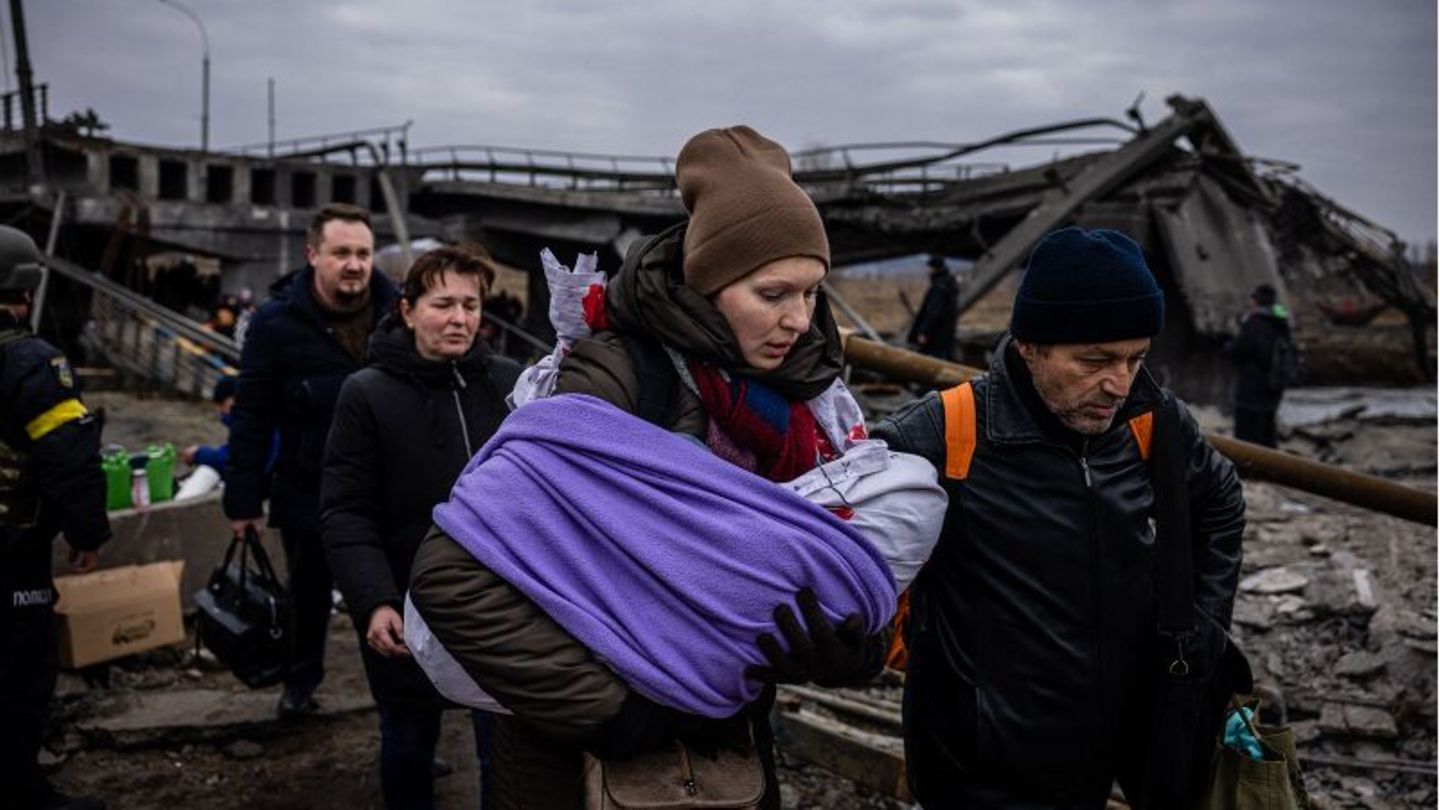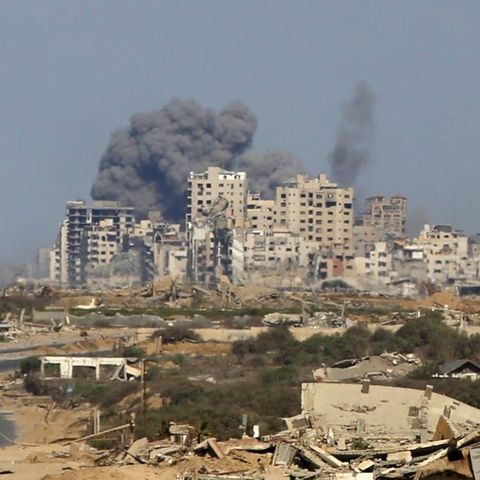Russian attacks in Ukraine continue. For the first time, civilians are being taken out of Sumy via an escape corridor. And the debate about an energy embargo is gaining momentum. The situation in the evening at a glance.
The Russian war of aggression in Ukraine has already lasted almost two weeks. And there is at least one piece of good news: for the first time, hundreds of civilians were rescued from the embattled city of Sumy in the north-east of the country today, Tuesday. According to the authorities, at least 21 people, including two children, died there in Russian attacks during the night.
In contrast, the situation in the besieged port city of Mariupol on the Azov Sea is considered particularly critical. According to the Red Cross, 200,000 people are waiting there to get out of the city via various routes. According to the International Committee of the Red Cross, the situation is catastrophic. “The situation is apocalyptic,” said spokesman Ewan Watson. More than 400 civilians have been killed since Russia attacked Ukraine on February 24, according to the UN.
Zelenskyi ready for talks on Donbass and Crimea
At the same time, diplomatic efforts to de-escalate and end the war are in full swing. China’s head of state and party leader Xi Jinping called for cooperation after a video call with Chancellor Olaf Scholz (SPD) and French President Emmanuel Macron. All efforts towards a peaceful solution should be supported.
Ukrainian President Volodymyr Zelensky himself has said he is ready for talks on the status of the separatist areas in the east of the country and the Black Sea peninsula of Crimea annexed by Russia. At the same time, Zelenskyy made it clear on Monday evening on US broadcaster ABC that he would not respond to demands from Moscow to recognize the independence of the self-proclaimed “People’s Republics” and Russian rule over Crimea. “I am ready for a dialogue. But we are not ready for a surrender.”
Russia threatens to stop gas deliveries – debate about energy embargo
Meanwhile, Russia has for the first time openly threatened to stop gas supplies through the Nord Stream 1 pipeline in the Baltic Sea. “We have the full right to make a “mirrored” decision and to issue an embargo on the passage of gas through the Nord Stream 1 pipeline,” said Deputy Prime Minister Alexander Nowak, referring to the stopped Nord Stream 2 pipeline .
In response, the US issued an import ban on oil from Russia on Tuesday. “This means that Russian oil will no longer be accepted in US ports and the Americans will deal another serious blow to Putin’s war machine,” US President Joe Biden said in the White House. Federal Economics Minister Robert Habeck warned of serious damage to Germany in the event of a Western embargo on Russian energy supplies. After consultations with the energy ministers of the federal and state governments, the Green politician said that over the past 20 years Germany had become increasingly dependent on fossil energy imports from Russia. “This is not a good condition.”
Driven by oil prices, fuel prices also rose above the two euro threshold for the first time on Tuesday. According to the ADAC, the national average for premium E10 petrol on Monday was 2.008 euros per liter, with diesel it was 2.032 euros. At the same time, the oil giant Shell announced that it would no longer do business in Russia. They will no longer buy Russian oil on a daily basis and will let long-term contracts expire, it said. In addition, the gradual move away from Russian gas is planned.
UN: More than two million refugees from Ukraine
According to UN figures, more than two million people have fled Ukraine since the start of the war. Most people went to Poland, as well as Hungary, Romania, Moldova and Slovakia, said a spokeswoman for the United Nations High Commissioner for Refugees (UNHCR). According to the UN Organization for Migration, these included a good 100,000 people from third countries. A spokesman for the Federal Ministry of the Interior announced that the number of war refugees who had arrived in Germany had risen to 64,604. Since there are no stationary controls at the internal EU borders, the actual number could already be significantly higher.
Source: Stern
David William is a talented author who has made a name for himself in the world of writing. He is a professional author who writes on a wide range of topics, from general interest to opinion news. David is currently working as a writer at 24 hours worlds where he brings his unique perspective and in-depth research to his articles, making them both informative and engaging.




